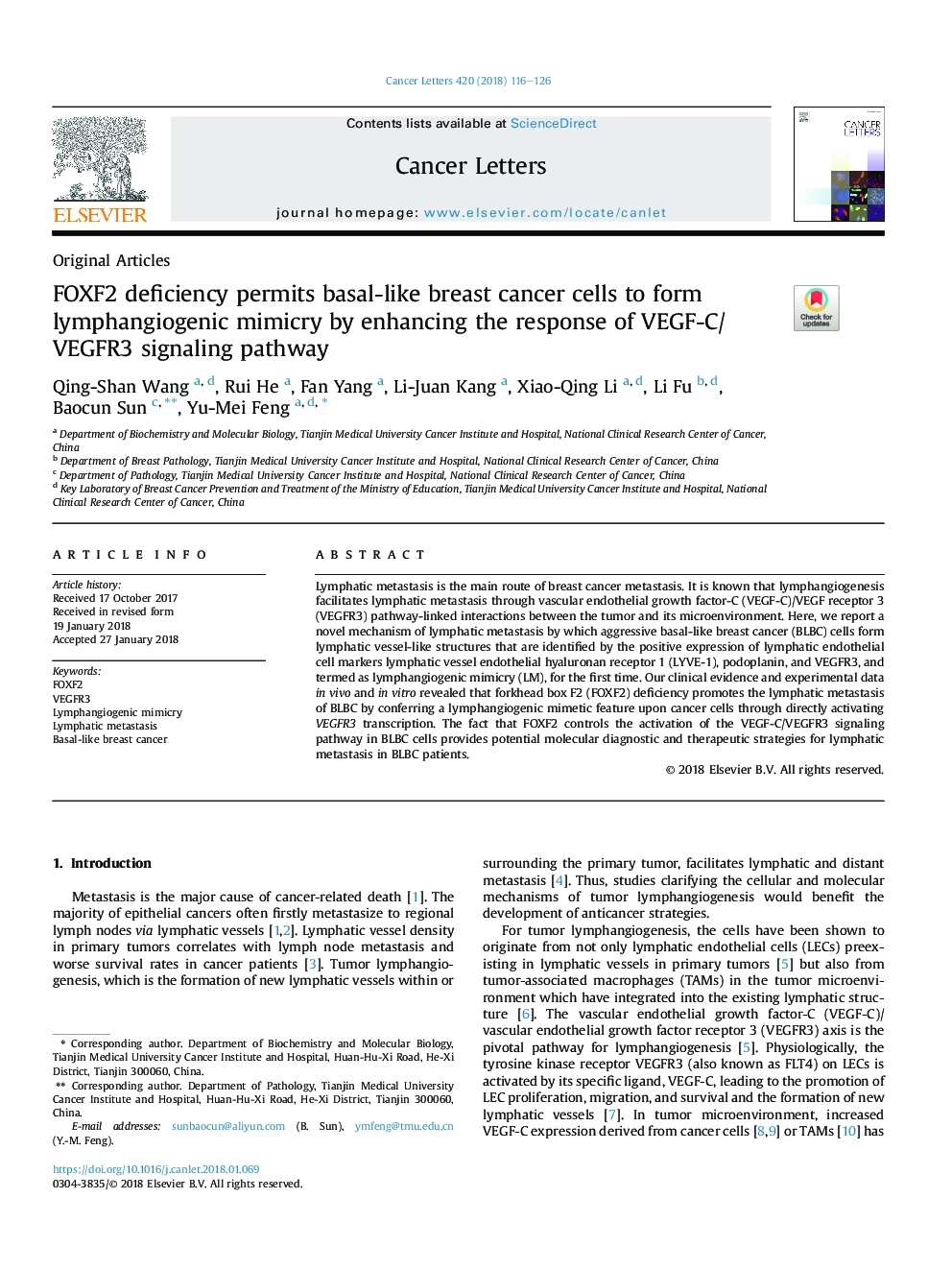| Article ID | Journal | Published Year | Pages | File Type |
|---|---|---|---|---|
| 8434660 | Cancer Letters | 2018 | 11 Pages |
Abstract
Lymphatic metastasis is the main route of breast cancer metastasis. It is known that lymphangiogenesis facilitates lymphatic metastasis through vascular endothelial growth factor-C (VEGF-C)/VEGF receptor 3 (VEGFR3) pathway-linked interactions between the tumor and its microenvironment. Here, we report a novel mechanism of lymphatic metastasis by which aggressive basal-like breast cancer (BLBC) cells form lymphatic vessel-like structures that are identified by the positive expression of lymphatic endothelial cell markers lymphatic vessel endothelial hyaluronan receptor 1 (LYVE-1), podoplanin, and VEGFR3, and termed as lymphangiogenic mimicry (LM), for the first time. Our clinical evidence and experimental data in vivo and in vitro revealed that forkhead box F2 (FOXF2) deficiency promotes the lymphatic metastasis of BLBC by conferring a lymphangiogenic mimetic feature upon cancer cells through directly activating VEGFR3 transcription. The fact that FOXF2 controls the activation of the VEGF-C/VEGFR3 signaling pathway in BLBC cells provides potential molecular diagnostic and therapeutic strategies for lymphatic metastasis in BLBC patients.
Related Topics
Life Sciences
Biochemistry, Genetics and Molecular Biology
Cancer Research
Authors
Qing-Shan Wang, Rui He, Fan Yang, Li-Juan Kang, Xiao-Qing Li, Li Fu, Baocun Sun, Yu-Mei Feng,
